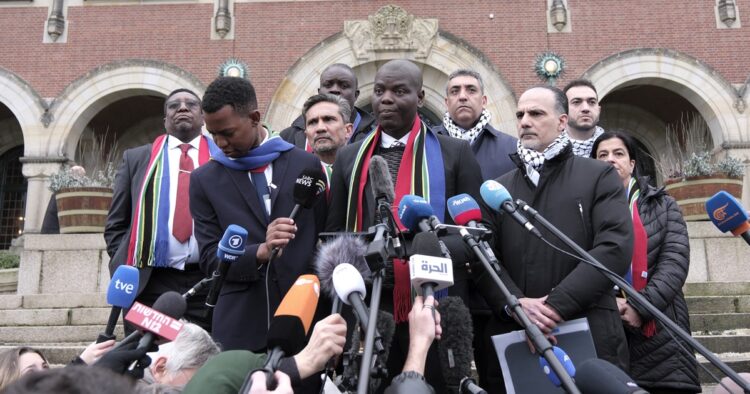In a historic move, South Africa has formally accused Israel of committing genocide against Palestinians, bringing the case to the International Court of Justice. The accusation centers on Israeli military operations in Gaza, which South African lawyers argue are part of a decades-long pattern of oppression against Palestinians.
Israel, founded in the aftermath of the Holocaust, vehemently denies the allegations. Israeli leaders, recognizing the seriousness of the case, have engaged with the court to defend their international reputation, despite their usual stance of boycotting such tribunals.
South African lawyers presented evidence of what they claim is a pattern of conduct amounting to “a plausible claim of genocidal acts.” Prime Minister Benjamin Netanyahu criticized the case, vowing to continue fighting against Hamas, the militant group responsible for a deadly attack on Israeli communities.
Seeking Immediate Halt and Accountability
South Africa seeks preliminary orders from the court to compel Israel to stop its military campaign in Gaza. The current Gaza war, lasting three months, has resulted in a significant loss of life and displacement. South African lawyers argue that only an order from the International Court of Justice can end the suffering.
The court’s decision on South Africa’s request for “provisional measures” is expected to take weeks, while the full case is likely to extend over several years. The court’s findings are considered binding, and non-compliance by Israel could lead to U.N. sanctions, potentially facing a U.S. veto.
Israeli Perspective and International Response
Israel insists it is battling a fierce enemy and emphasizes its commitment to international law and minimizing harm to civilians. The White House refrained from commenting on potential actions if the court determines Israel committed genocide, calling the allegations “unfounded.”
In response to South Africa’s presentation, an Israeli Foreign Ministry spokesman criticized it as “one of the greatest shows of hypocrisy,” accusing the legal team of being “Hamas’ representatives in court.”
Complexities of the Conflict and Identity
The case not only delves into the heart of Israel’s national identity but also resonates with South Africa’s own history. Drawing parallels, the African National Congress likens Israel’s policies to its apartheid past. The case touches upon issues central to both nations’ identities.
The hearings continue, with Israel set to present its defense. The case’s significance lies in its potential impact on one of the world’s most intractable conflicts and the International Court of Justice’s attempt to address claims of genocide.
International Court’s Historical Context
The International Court of Justice has never judged a country responsible for genocide. This case invokes the genocide convention of 1948, with both Israel and South Africa being signatories. The court’s decision could have implications not only for Israel but also for future cases related to allegations of genocide.
Additionally, Israel will face the International Court of Justice next month for hearings on a UN request for an advisory opinion on the legality of its policies in the West Bank and East Jerusalem.

















Comments